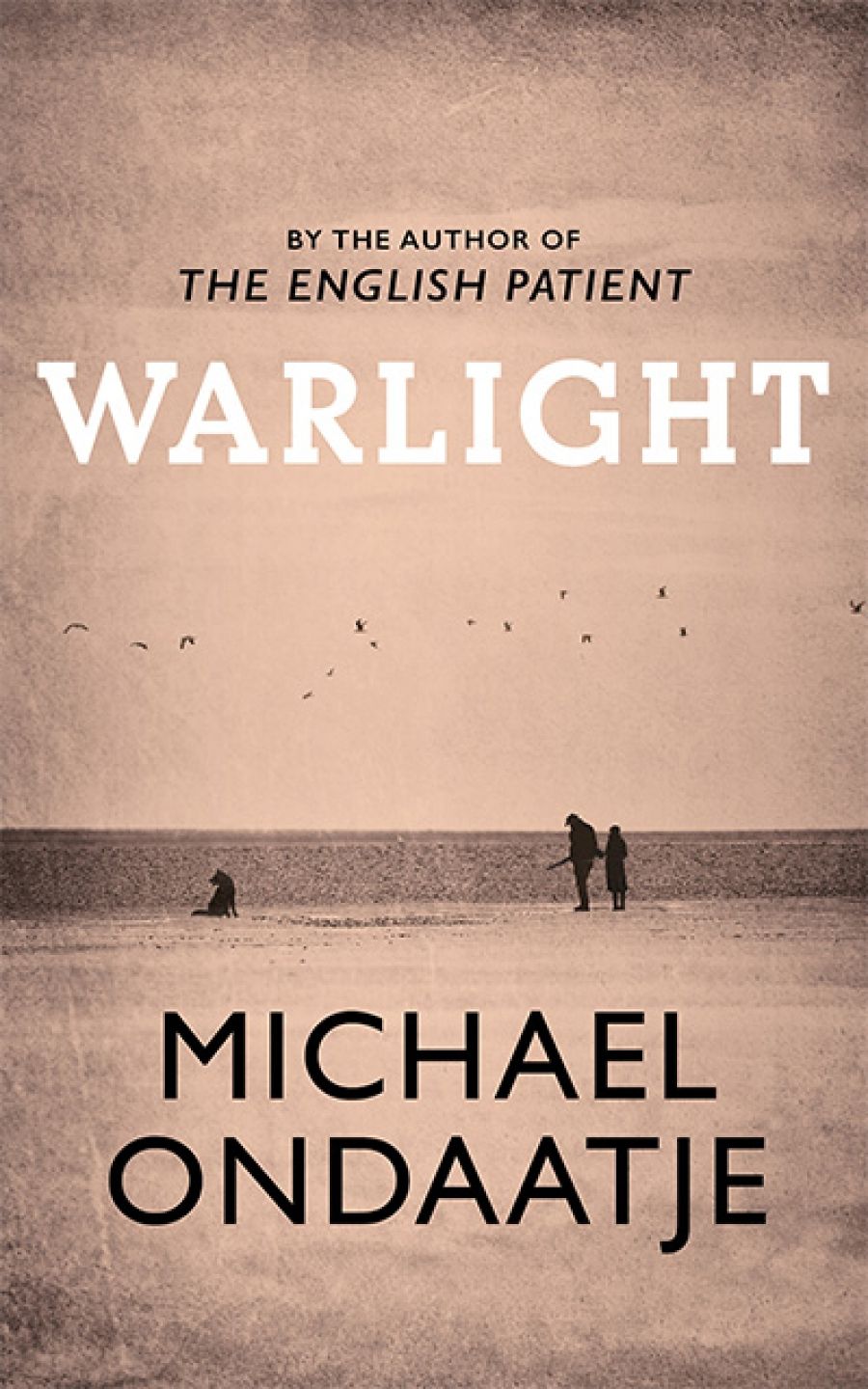
- Free Article: No
- Contents Category: Fiction
- Custom Article Title: Beejay Silcox reviews 'Warlight' by Michael Ondaatje
- Custom Highlight Text:
In a cheerless London basement, a young man sifts through the bureaucratic detritus of World War II: ‘to unearth whatever evidence might still remain of actions that history might consider untoward’. The project is called ‘The Silent Correction’ – a furtive dimming of the national memory. Warlight, Michael Ondaatje’s effulgent new novel, is a story of half-lights and half-truths – a novel of matchlight, gaslight, limelight and moonlight, sodium light and storm light, bonfires and bomb-fires ...
- Book 1 Title: Warlight
- Book 1 Biblio: Jonathan Cape, $29.99 pb, 290 pp, 9781787330726
Warlight feels like a culmination: not an ending, but a chorus of Ondaatje’s most potent preoccupations. The novel returns to the moral gloaming and tumult of World War II, the setting that earned the Canadian author a Man Booker Prize for The English Patient in 1992 (and has recently secured him a place on the Golden Man Booker shortlist). This time, Ondaatje turns his poetic attentions to postwar London, a city that knows in its battered body that wars don’t end with signatures and too-firm handshakes, they are wounds – they fester and scar.
In his lush second novel, In the Skin of a Lion (1987), Michael Ondaatje wrote: ‘The first sentence of every novel should be: Trust me, this will take time but there is order here, very faint, very human.’ Warlight – Ondaatje’s seventh – opens with a near-perfect literary fishhook, barbed and baited: ‘In 1945 our parents went away and left us in the care of two men who may have been criminals.’
The first of this dubious duo is The Moth, the quiet centre of a ramshackle salon of ‘busy, argumentative souls, who, having at one time legally crossed some boundary during the war, were now suddenly told they could no longer cross it during peace’. The second is The Pimlico Darter, a former welterweight boxer turned avuncular greyhound smuggler, who understands ‘the layered grief of the world as well as its pleasures’.
Their unparented charges – our narrator, Nathaniel (known as Stitch), and his sister, Rachel (Wren) – are captivated by the Dickensian ‘night zoo’ that has taken over their once-ordered home. It feels like ‘an unravelling dream’, but there is something precarious about this new world, the dual possibilities of nightmare or waking.
Ondaatje is a precise and calculating foreshadower and his book requires a vigilant reader, patient at first, ears pricked for echoes and refrains – a photograph, a dropped name, a stray line of poetry. The joy of Warlight is that its revelations feel both inevitable and jolting, like a controlled explosion. Part One carefully and quietly lays the charges; Part Two detonates.
When we meet Nathaniel again as an adult – the young man in the basement – he is not only searching for history’s loose ends but for ‘the possibility of an inheritance’, scraps of information that might explain his postwar abandonment. Like much of Ondaatje’s recent fiction, Warlight is a circular creature – a mobius strip of memory – that looks back to childhood with adult eyes. ‘You return to that earlier time armed with the present,’ Nathaniel explains, ‘and no matter how dark that world was, you do not leave it unlit. You take your adult self with you. It is not to be a reliving, but a rewitnessing.’
 Michael Ondaatje (photograph by Daniel Mordzinski)But Nathaniel not only rewitnesses his own life, he bears omniscient witness to his mother’s. Rose is unashamed to want ‘a world she could fully participate in, even if it meant not being fully and safely loved’. Vitally, Ondaatje is not ashamed of her either. He refuses to club her with the bad-mother cudgel or trap her in the narrative cage of a doomed wartime romance. As Nathaniel comes to understand: ‘I would in some way have to love my mother in order to understand who she now was and what she really had been.’
Michael Ondaatje (photograph by Daniel Mordzinski)But Nathaniel not only rewitnesses his own life, he bears omniscient witness to his mother’s. Rose is unashamed to want ‘a world she could fully participate in, even if it meant not being fully and safely loved’. Vitally, Ondaatje is not ashamed of her either. He refuses to club her with the bad-mother cudgel or trap her in the narrative cage of a doomed wartime romance. As Nathaniel comes to understand: ‘I would in some way have to love my mother in order to understand who she now was and what she really had been.’
Unlike so much World War II fiction, Warlight wears its research lightly – it inhabits rather than showcases its preparation. Grand works of art are hidden in hotel basements. Rabbits invade victory gardens. A small village paper reports: ‘A police officer felt “emotional” during a thunderstorm while making his last patrol of the night’; and we know exactly what is meant. There’s no need for explanation.
Ondaatje is a writer’s writer. That term is often deployed with cynicism – a sly marker of impenetrable cleverness – but not here. Ondaatje cares as much for the art of storytelling as he does for the act. His fiction is a draw to those who care about the craft of writing because it contains the philosophy of its own making. Every novel he writes is, at its heart, a novel about writing – about how we make memories, histories, and myths, and how literature can unmake them. ‘I suppose there are traditions and tropes in stories like this,’ Nathaniel posits. Yes, Warlight replies, but look again. Shine a light in.


Comments powered by CComment